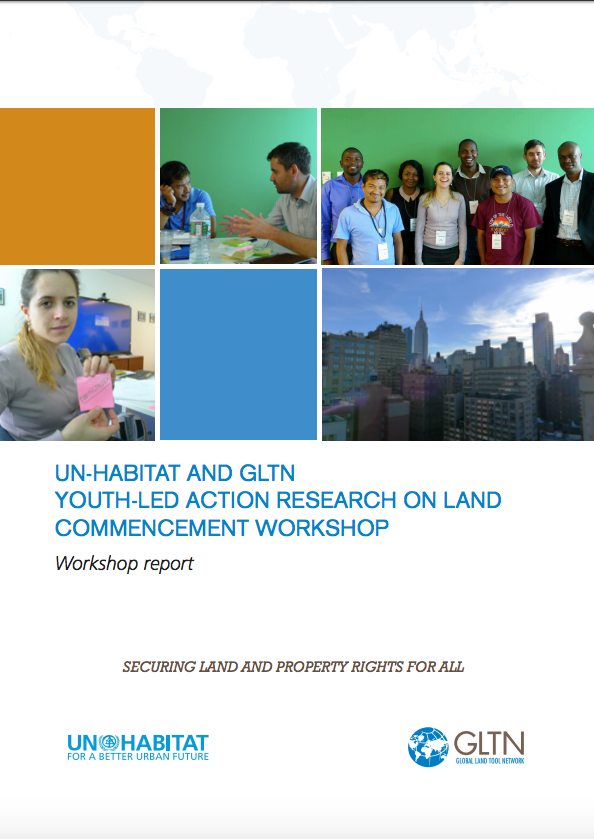Resource information
The land challenge is central to the broader youth dynamics of migration, employment, livelihoods and belonging. The more than 1.8 billion youth living worldwide represent not only a land challenge, but an untapped potential in moving the tenure security agenda forward. Recognizing this, the Global Land Tool Network has partnered with UN-Habitat to develop youth responsive land tools through the Youth-led Action Research on Land program. Five action research projects will be undertaken by youth organizations in Brazil, Kenya, Nepal, Yemen and Zimbabwe. Each focuses on the engagement of youth in land decision making, the needs of youth relating to land, and the development of tools that will support pro-poor, pro-youth good land governance. The projects will help advance the development of youth-inclusive and participatory approaches to land governance, by identifying youth as both a target group for tenure security as well as important drivers of change in the land sector.


